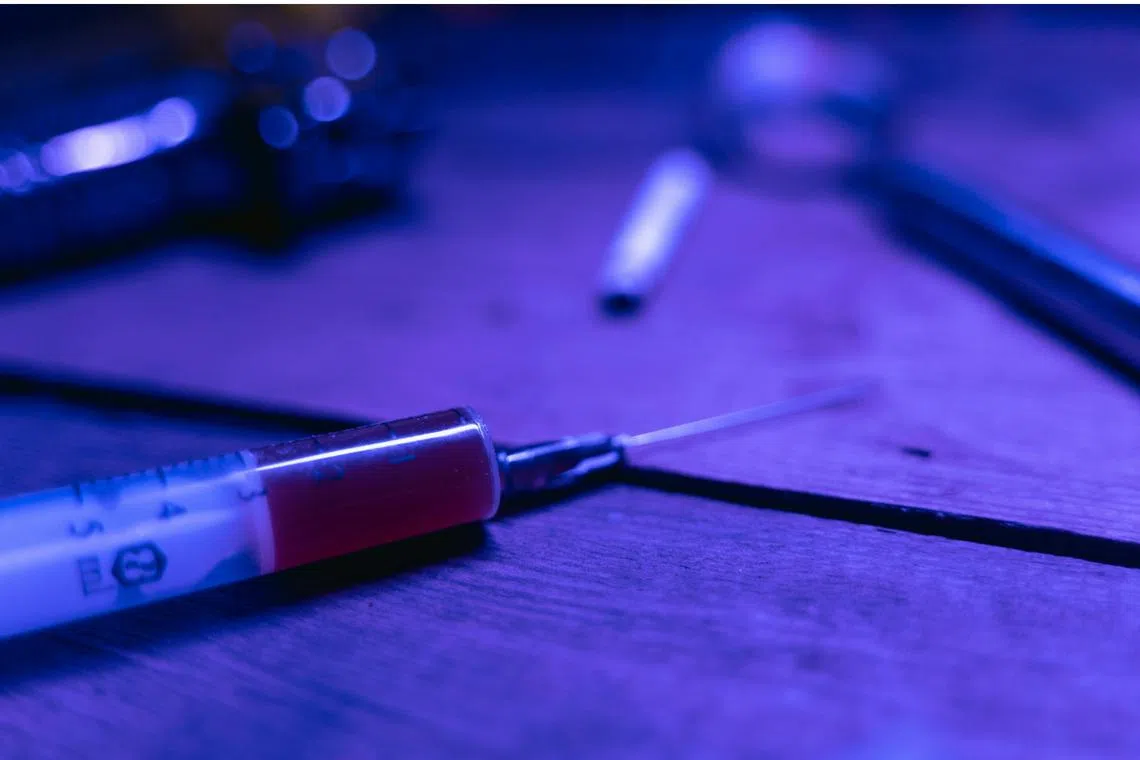Drug use rises in South Korea, but 13 addiction clinics treated no one in 2023: Report
Sign up now: Get ST's newsletters delivered to your inbox

The estimated number of drug users in South Korea has been on the upward trend in recent years.
PHOTO: PEXELS
Follow topic:
SEOUL – The estimated number of drug users in South Korea has surged to more than 400,000 in 2024, but several of the state-designated hospitals for drug addiction treatment have not treated a single patient this year.
According to the local DongA Ilbo newspaper, a Ministry of Health and Welfare report estimated that 400,530 people in South Korea are thought to have used illegal drugs this year.
This figure is derived from the ministry’s formula of multiplying by 30 the actual number of those investigated for drug use, which is 13,351 so far this year.
The estimated number of drug users has been on the upward trend in recent years. For the whole year of 2019, it was 246,300. In 2023, the number jumped to 326,970.
However, this comes alongside a crackdown on drugs, which is likely to increase the number of people investigated for drug use – and therefore the estimated number of users – even without a corresponding rise in the actual number of users.
South Korea’s Narcotics Control Act bans the use, distribution and possession of what it defines as narcotics, along with the unregulated use of what it defines as psychotropic drugs.
The number of those investigated for drug-related crimes – which is higher than the number investigated for use because it also includes distribution and possession – was 27,611 in 2023, according to the Supreme Prosecutors’ Office.
South Korea has designated 31 major hospitals for drug addiction treatment. A total of 641 people were being treated at the designated hospitals in 2023, up from 260 in 2019.
But nearly half of these designated hospitals are reportedly not fully functioning as drug addiction centres.
DongA Ilbo, quoting the ministry report, said that 13 of the 31 hospitals treated zero patients this year as at September. Four hospitals each treated one patient.
“The lack of a system for treating drug addiction,” such as not having medical staff with drug addiction expertise, was cited as why they did not treat such patients.
The ministry report was submitted to Representative Suh Myung-ok of the ruling People Power Party, who said the financial subsidy for the hospitals is not sufficient to address the increasing number of drug addiction in the country.
A total of 900 million won (S$855,180) of government funds is given as subsidies to the 31 hospitals, which averages about 29 million won per hospital.
South Korea’s government bumped up this year’s budget for anti-drug policies, but only a fraction of the budget is dedicated for treatment of drug addiction.
The Ministry of Economy and Finance allocated 416 million won for drug addiction treatment programmes – separate from the aforementioned addiction-related subsidy for the 31 hospitals – although the Health Ministry had initially requested a budget of 2.8 billion won for this particular field. THE KOREA HERALD/ ASIA NEWS NETWORK

